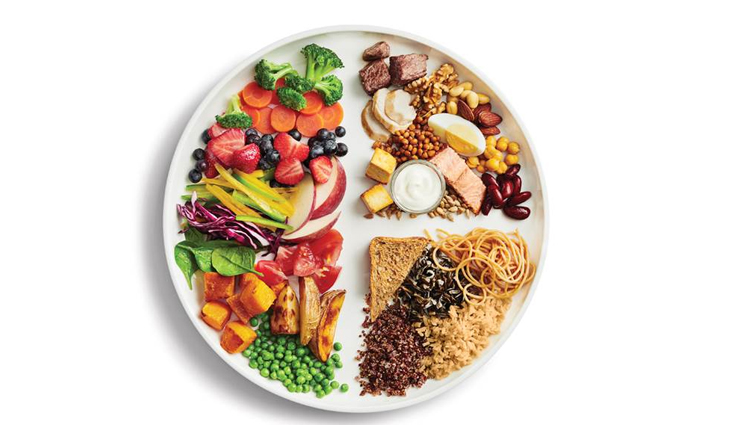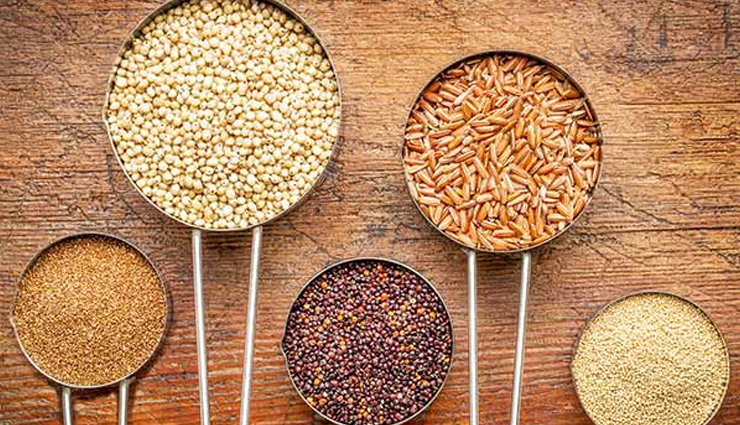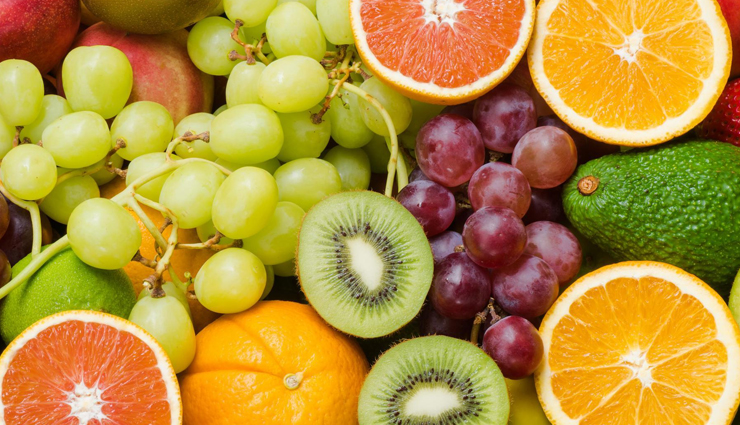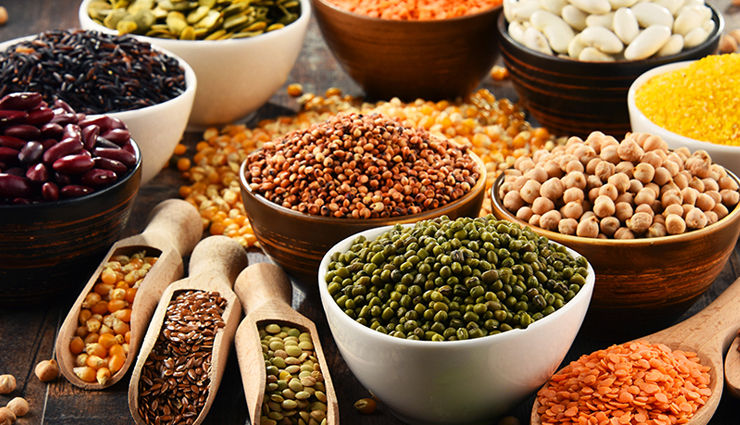- Home›
- Healthy Living›
- 4 New Food Groups You Need To Adopt In Your Lifestyle
4 New Food Groups You Need To Adopt In Your Lifestyle
By: Kratika Sun, 23 Jan 2022 9:25:57

Adopting a new plant-based lifestyle means adopting new food groups. A vegetarian or vegan diet leans on whole grains, vegetables, fruit, and legumes to supply protein, good carbohydrates, fiber, vitamins, minerals, and antioxidants. People eating a plant-based diet, relying on these food groups, are less prone to being overweight, obese, or developing heart disease, diabetes, certain types of cancer, and other health problems.

# Whole Grains
Whole grains are the seeds of grasses, cultivated as food. These include breads, pasta, cereal (hot or cold), barley, amaranth, buckwheat, millet, oats, quinoa, brown or wild rice, and wheat. Whole grains have the complete nutrition from the entire seed, including the bran, germ, and endosperm. However, this does not include white bread, regular pasta, or white rice. These have all been stripped of the bran and germ, losing valuable fiber and nutrients.
You should eat five or more servings a day of whole grains, building each meal around these staples. Whole grains are rich in complex carbohydrates that provide long term energy without blood sugar spikes, as well as protein to build muscle and power metabolism, fiber for digestive health, B vitamins, and zinc. A serving size is approximately ½ cup of the whole grains, 1 ounce dry cereal, or 1 slice of bread.
Sprouts of grains and seeds maximize nutrition. As seeds sprout, they produce powerful antioxidants and enzymes. The nutrients in sprouts are more bio-available, meaning your body more readily absorbs them and puts them to use.

# Vegetables
We all know what vegetables are. We may have always loved them or we may have spent our lives pushing them around our plate, pretending to eat them. It’s time to learn to love them, because vegetables are packed with nutrition. They provide vitamin C, beta carotene, riboflavin, iron, calcium, fiber, and many other nutrients. Dark leafy greens are one of the best sources of iron and other important vitamins and minerals, along with large amounts of antioxidants.
You should eat four or more servings a day of vegetables. Choose a variety of vegetables in generous portions and you will not get bored with them and go back to pushing them around. A serving is 1 cup raw vegetables or ½ cup cooked.

# Fruit
Fruit is nature’s candy. It’s sweet, but without the downsides that come from eating processed junk food. The sugar content of fruit is balanced out with fiber, water, and powerful antioxidants. Fiber slows the absorption of the sugars, allowing the body to keep up with the process of converting fructose into the more usable glucose and not causing huge blood sugar spikes like processed cane sugar or corn syrup will. Whole fruit is also usually low in calories, despite that sweet taste, thanks to the fiber and water.
The antioxidants are where fruits truly shine, especially berries. Many are also high in enzymes that improve digestion. You should eat three or more servings of fruit a day. When possible, choose whole fruit over juices that have the fiber and some nutrients removed. Smoothies are a good way to get the juice feeling while still getting the benefit from the fiber. Also reach for the brightest colored fruits; they will usually be the richest in antioxidants. A serving size is 1 medium piece of fresh fruit, ½ cup cooked fruit, or 4 ounces of juice.

# Seeds, Nuts, and Legumes
Seeds, nuts, and legumes are excellent sources of protein. Many also come stocked with essential omega fatty acids. Good seeds to consider are chia, sesame, and squash seeds. Walnuts, almonds, and hazelnuts are some of the best tree nuts for protein, omega-3, and other nutrients. Legume is another name for beans, peas, and lentils, all of which are good sources of fiber, protein, iron, calcium, zinc, and B vitamins.
Legume also encompasses sprouted tofu, soymilk, and tempeh though soy products can irritate allergies and contain phytoestrogens. Stick closer to other legumes and only use soy in moderation, if at all.
You should eat two or more servings of legumes a day. A serving is ½ cup cooked beans, peas, or lentils, 4 ounces sprouted tofu or tempeh, or 8 ounces of almond or soy milk. You should eat several servings of seeds or nuts a week. A serving of seeds or nuts is 2 ounces whole or 8 ounces almond milk. Those with nut allergies should not consume tree nuts, but should supplement their diet with seeds, like pumpkin and chia, for omega fatty acids.





